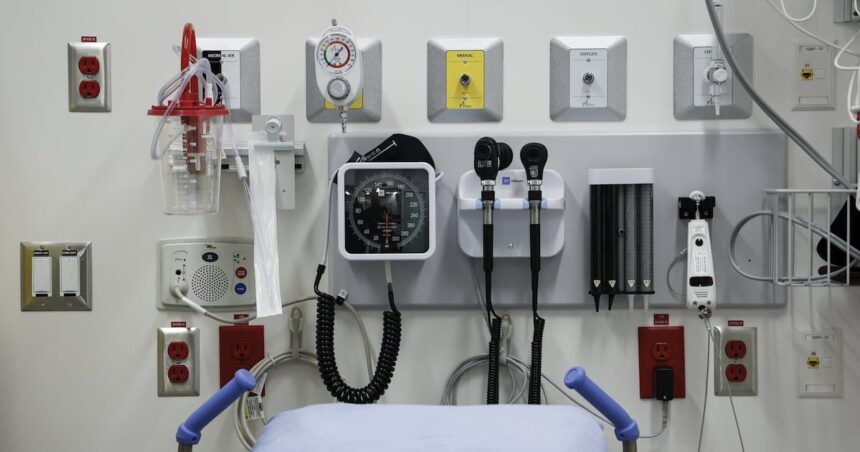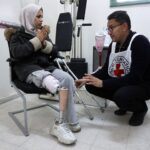As I pulled into the Kelowna General Hospital parking lot last Tuesday, a mother was loading her five-year-old son into their SUV. The boy clutched a stuffed dinosaur, his face pale but smiling. “We’re driving to Kamloops,” she told me, adjusting his seatbelt. “Three hours each way. His pneumonia needs monitoring, but they can’t keep him here anymore.”
This scene has become increasingly common since Interior Health announced the temporary closure of Kelowna General Hospital’s pediatric ward earlier this month. The 32-bed unit, which typically serves thousands of children annually from across B.C.’s Southern Interior, has been converted to adult care amidst what officials describe as “unprecedented capacity challenges.”
For families in the Okanagan Valley, this closure creates a stark new reality: children requiring hospitalization must now travel to Kamloops, Penticton, or even Vancouver—journeys of up to five hours that separate families during medical crises.
“We’re seeing the healthcare system cannibalize itself,” explains Dr. Maya Henderson, a family physician in West Kelowna who has had three pediatric patients transferred out of the region in the past week. “When you close a children’s ward to make room for adults, you’re not solving the capacity problem—you’re just moving it elsewhere and placing that burden on families.”
The Kelowna closure represents the third pediatric unit reduction in British Columbia since January. According to data from the BC Nurses’ Union, pediatric capacity province-wide has decreased by approximately 18% in the past three years, while population growth in many regions continues to climb.
When I visited the eerily quiet former pediatric floor at KGH, now housing adult patients primarily with respiratory conditions, charge nurse Danielle Morrison shared her concerns. “My colleagues in Kamloops are already overwhelmed,” she said, adjusting an IV for a senior patient in what was previously a child’s room still decorated with colorful wall decals. “We’re all trained to care for specific populations. This shuffling of patients means everyone works outside their expertise, which isn’t ideal for quality care.”
Interior Health has characterized the closure as temporary, citing a “perfect storm” of healthcare pressures including staffing shortages, an aging population, and ongoing respiratory illness surges. However, internal documents obtained through freedom of information requests show discussions about permanent “service consolidation” of pediatric care began as early as October 2023.
For Indigenous communities in the Interior, the closure creates particular hardships. “Our families are already dealing with transportation barriers,” explains Sheila Marchand, health navigator for the Westbank First Nation. “When a child needs hospitalization, having to travel to Kamloops means parents may not be able to visit daily if they don’t have reliable transportation or can’t afford accommodation.”
This reality contradicts the provincial government’s stated commitment to reconciliation in healthcare. The BC Ministry of Health’s 2023 strategic plan specifically prioritizes “improved access to culturally safe healthcare services closer to home”—a promise now seemingly impossible for many Indigenous families in the Interior region.
The province’s healthcare capacity crisis extends beyond pediatrics. Recent data from the Canadian Institute for Health Information reveals British Columbia has among the lowest hospital bed-to-population ratios in Canada, with just 2.0 beds per 1,000 residents compared to the national average of 2.5.
Lisa Lapointe, chief coroner for British Columbia, warned in her year-end report that limited acute care capacity has contributed to increased mortality among vulnerable populations. “When hospitals are consistently operating at 110-120% capacity, care quality inevitably suffers,” she noted.
For Dr. Henderson, the pediatric ward closure represents a failure of long-term planning. “We’ve known for decades that our population is aging and growing. We’ve known we need more healthcare workers. Yet here we are, making children travel hours for care because we didn’t build the capacity we needed.”
The ripple effects extend to neighboring facilities. At Royal Inland Hospital in Kamloops, pediatric nurse Jamie Santos described the strain on their 24-bed unit now serving a vastly expanded catchment area. “We’ve been over capacity seven out of nine days since the Kelowna closure,” she told me by phone. “We’re doing our best, but families are sleeping in chairs because we don’t have enough parent beds. It’s heartbreaking.”
Community response has been swift. A rally organized by Parents Advocating for Children’s Health drew over 300 protestors to Kelowna’s downtown last weekend. Organizer Rebecca Whitton, whose daughter has complex medical needs, fears the “temporary” designation may prove permanent.
“We’ve seen this pattern before,” Whitton told the crowd. “Services disappear during a crisis and never return. Our children deserve better than being treated as the flexible part of the healthcare equation.”
As the evening shift began at KGH, I watched ambulances arrive with adult patients while children’s health services remain redirected elsewhere. The converted pediatric ward now houses primarily elderly patients with respiratory conditions and post-surgical adults who would typically be in other units.
For the mother I met in the parking lot, the reality is immediate and personal. “My son needs oxygen monitoring overnight,” she explained, “but apparently not enough to keep a children’s ward open. I don’t blame the doctors or nurses—they’re doing their best. But something is broken in a system that sends sick kids on highway trips instead of caring for them close to home.”
As Interior Health’s leadership meets next week to reassess the closure timeline, families across the region wait anxiously to learn if pediatric care will return to Kelowna before winter—typically the busiest season for childhood hospitalizations—or if this “temporary” measure signals a permanent shift in how and where British Columbia’s children receive the care they need.






